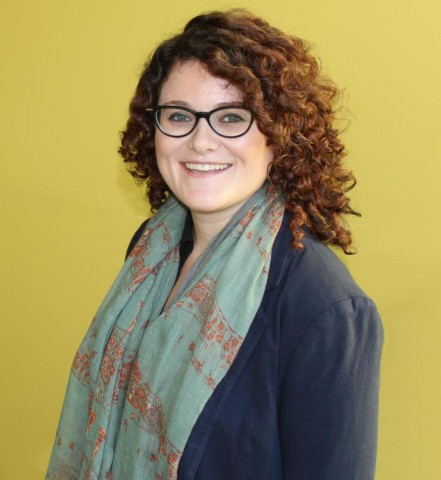
SEATTLE, WASH. — November 9, 2017 — Eva Dyer, assistant professor in the Wallace H. Coulter Department of Biomedical Engineering at the Georgia Institute of Technology and Emory University, is part of the newest cohort of Next Generation Leaders, the Allen Institute for Brain Science announced today.
Dyer is one of six distinguished young researchers who will provide feedback in both formal and informal settings to young scientists at the Allen Institute. The program recognizes the outstanding and innovative contributions from emerging scientific leaders and fosters professional development by providing opportunities and informal training on how to serve as scientific advisors.
“We are very pleased to welcome this group of impressive researchers as advisors to the Allen Institute,” says Christof Koch, President and Chief Scientific Officer of the Allen Institute for Brain Science. “Their caliber and fresh perspectives make them invaluable to our team. We look forward to hearing their feedback as well as providing guidance as they build their own careers.”
Next Generation Leaders are selected each year through a competitive application process from a pool of international applicants. This fourth cohort of Next Generation Leaders includes members from institutions around the country, each of whom will serve a three-year term on the council.
Here’s a complete list of the newly appointed Next Generation Leaders Advisory Council members:
- Renata Batista Brito, Ph.D., Postdoctoral Fellow, Yale University; Assistant Professor, Albert Einstein School of Medicine in 2018
- Andre Berndt, Ph.D., Assistant Professor, University of Washington
- Denise Cai, Ph.D., Assistant Professor, Icahn School of Medicine at Mount Sinai
- Eva Dyer, Ph.D., Assistant Professor, Wallace H. Coulter Department of Biomedical Engineering, Georgia Institute of Technology and Emory Univesity
- Andrew Miri, Ph.D., Postdoctoral Fellow, Columbia University; Assistant Professor, Northwestern University in January 2018
- John Tuthill, Ph.D., Assistant Professor, University of Washington
Dyer’s research interests lie at the intersection of machine learning, optimization, and neuroscience. She develops computational methods for discovering principles that govern the organization and structure of the brain, as well as methods for integrating multi-modal datasets to reveal the link between neural structure and function.
“As a computational neuroscientist, I see the Allen Institute for Brian Science’s open access datasets as a literal treasure trove,” says Dyer. “In my role as a Next Generation Leader, I look forward to building a strong and lasting relationship with the Allen Institute. I believe that our collaborative relationship will help facilitate the development of large-scale and open neural data analysis methods so greatly needed by the neuroscience community.”
The Next Generation Leaders council will convene at this year’s Showcase Symposium, held in Seattle Dec. 13-14, 2017. The new members will give presentations on their work and meet with Allen Institute researchers. Additional responsibilities of the Next Generation Leaders include attending a primary advisory council meeting at the Allen Institute in Seattle once per year, to provide feedback on Institute research projects that helps the Allen Institute plan and adopt the best methods for meeting its scientific goals.
About the Allen Institute for Brain Science: The Allen Institute for Brain Science is a division of the Allen Institute (alleninstitute.org), an independent, 501(c)(3) nonprofit medical research organization, and is dedicated to accelerating the understanding of how the human brain works in health and disease. Using a big science approach, the Allen Institute generates useful public resources used by researchers and organizations around the globe, drives technological and analytical advances, and discovers fundamental brain properties through integration of experiments, modeling and theory. Launched in 2003 with a seed contribution from founder and philanthropist Paul G. Allen, the Allen Institute is supported by a diversity of government, foundation and private funds to enable its projects. The Allen Institute for Brain Science’s data and tools are publicly available online at brain-map.org.
Contact:
Communications Officer II
Parker H. Petit Institute for
Bioengineering and Bioscience
